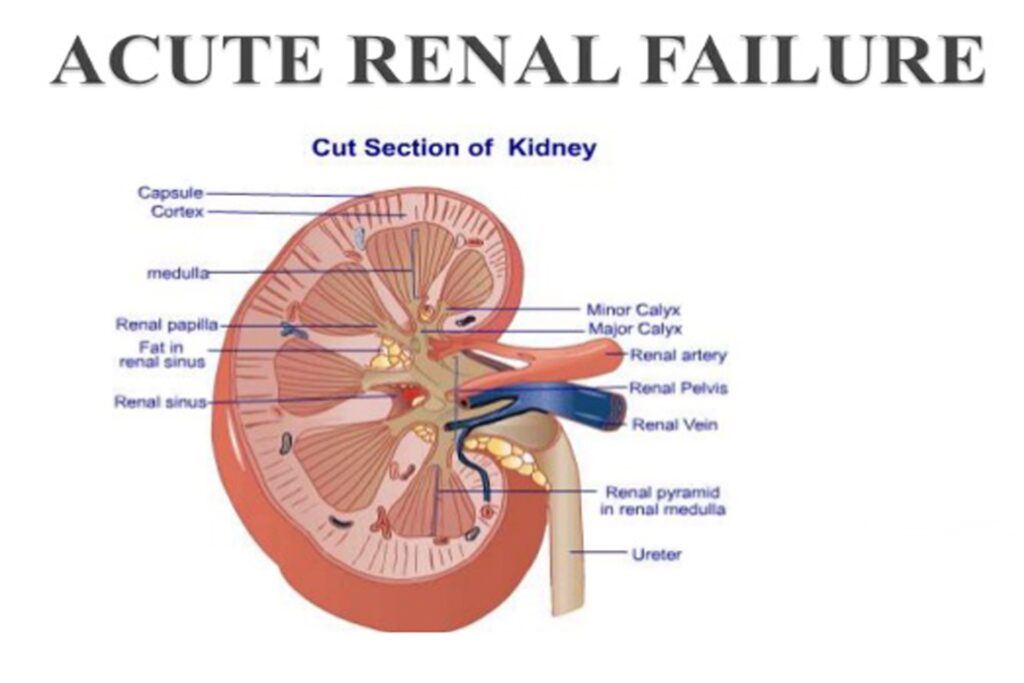
Overview:
Nephrotic syndrome is a kidney disorder characterized by excessive protein loss in the urine, leading to symptoms such as swelling (edema), low levels of protein in the blood, and high cholesterol. It can be acute (ARF – Acute Renal Failure) or chronic (CRF – Chronic Renal Failure), and if untreated, it can progress to kidney damage or failure.
Causes:
Nephrotic syndrome can be caused by a variety of conditions, including glomerulonephritis, diabetic nephropathy, or systemic conditions such as lupus. Acute Renal Failure (ARF) often results from sudden injury or infection, while Chronic Renal Failure (CRF) develops over time due to long-term damage to the kidneys, often related to conditions like hypertension or diabetes.
Symptoms:
The hallmark symptoms of nephrotic syndrome include swelling (edema), especially around the eyes, legs, and abdomen, fatigue, loss of appetite, foamy urine, and weight gain due to fluid retention. In more severe cases, there may be high blood pressure and signs of kidney failure such as reduced urine output or difficulty urinating.
Treatment:
Treatment focuses on addressing the underlying cause of nephrotic syndrome and managing symptoms. This may involve the use of corticosteroids, diuretics to reduce swelling, and medications to control blood pressure and cholesterol levels. In severe cases, dialysis may be required to support kidney function, and in rare cases, a kidney transplant may be necessary for end-stage renal failure.
Precautions:
Regular monitoring of kidney function and blood pressure is crucial to prevent further damage. Patients should follow their doctor’s instructions on medication and lifestyle changes. Limiting salt intake and maintaining a balanced diet are important for managing symptoms. Avoiding infections is key, as the immune system can be weakened in nephrotic syndrome.
Prevention:
Maintaining a healthy lifestyle, controlling blood sugar and blood pressure, and avoiding kidney-damaging substances such as over-the-counter pain relievers can help reduce the risk of nephrotic syndrome. Early detection and treatment of underlying conditions, such as diabetes and hypertension, can prevent the development of nephrotic syndrome.
For expert care in nephrotic syndrome management, visit KDM Hospital in Lucknow. The hospital offers comprehensive facilities, including dialysis, specialized nephrology care, and 24/7 medical support to ensure optimal kidney health.
